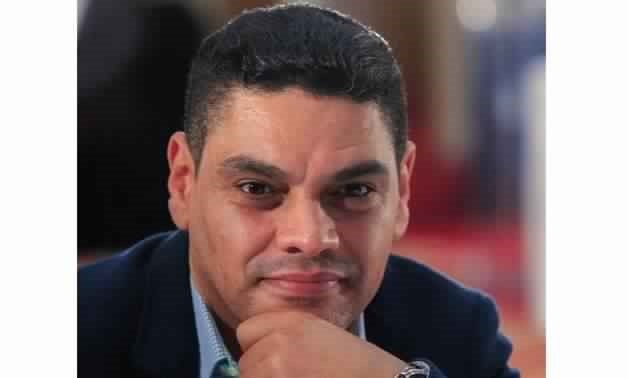
Professor Moataz Abdel Fatah
Foreign policy analysts say that each country has instruments through which it can achieve its objectives. These tools usually are firstly, the diplomatic tool in its official and popular parts, secondly an instrument of economic and military aid and media, thirdly, economic, military and media sanctions tool. Fourth, Intelligence work, whether linked to espionage, sabotage or interference in the direction of the policies of others or psychological warfare, whether using traditional or non-traditional media, or fifth, the military instrument of a minimum level of readiness, military mobilization and limited intervention to total war.
This is the theoretical and general part, but by application, Qatar, rather than seeking to correct its policy, is using the previous five instruments to "run away."
At the diplomatic level, Qatar is making a great diplomatic effort to play the role of the victim and to draw a picture of itself as if it were prey to an unjust blockade by the surrounding countries. It seemed to have achieved rapid success by approaching Iran, Turkey, France, the US, Germany and Russia until the Egyptian - Gulf Alliance States conducted the same tool in the opposite direction.
Then, Qatar was swept by criticism from US officials followed by a clear verbal retraction in the words of the Turkish president: "Our support for Qatar is not a substitute for our relations with other countries, and we are determined to continue to develop and strengthen our relations in all fields with all the Gulf States, especially Saudi Arabia."
At the level of aid and sanctions, Qatar has sought to cut off any aid it has traditionally offered to countries that have boycotted it because of its support of terrorism, such as Chad, which quickly withdrew its ambassador from Doha. Qatar has also withdrawn its troops from the border between Djibouti and Eritrea following a reduction in Djibouti's diplomatic representation in Doha.
On the other hand, the Qatari support for the US economy and US support for the Qatari's small army is in the context of giving the impression that the United States is an ally of Qatari and the US president's criticism of Qatar will not affect the strategic relationship between the two countries.
This is what happened when Qatar boasted a 12-billion-dollar F-15 fighter jets from the United States as direct US support from Washington to Qatar in its dispute with the Egyptian-Gulf alliance.
By virtue of its geographical proximity, Qatar is seeking to consolidate the alliance with Iran. It was a secret alliance, or at least undeclared, until Iran announced its direct and unequivocal support to Qatar and announced that it would send five planes, each transporting about 90 tons of food products and vegetables to Qatar; And a sixth plane is on the way.
Fourthly, the Qatari's intelligence tools and its allies which come together with Israeli, Iranian, Turkish and Western intelligence to coordinate among themselves to undermine the stability of Arab countries by supporting Hamas against the Palestinian Authority, supporting Shiites against the government in Bahrain, supported the Houthis against the legitimate government, supporting the Brotherhood against the National army in Libya and Hezbollah's support against the Lebanese state.
As part of waging of the media and psychological warfare against the people, Al-Jazeera provides an open platform for extremist forces and a pillar of terrorism under the slogan "Opinion and the other opinion". It sometimes broadcasts direct and sometimes implicit messages to undermine the legitimacy of the ruling regimes using voices outside the framework of the national opposition of the countries concerned.
Fifth is to use the military tool not to repel aggression or declare war, but rather the fear of the Qatari regime over a possible palace coup that would make the stability of the Emir's rule and the wing he represents of the family questionable.
An official source said the United States was monitoring "increased Qatari military activity" and that Qatar had placed its troops "at the highest alert". The Qatari army called 16 Leopard tanks from its warehouses in Doha, the source added.
Qatar also asked Turkey to send troops to participate in the protection of the Qatari regime, and the Turkish Parliament has agreed to send about 3,000 troops. There are still two US military bases in Qatar with 11,000 troops, making Qatar the most Gulf country to receive foreign troops on its territory.
What does all of the above mean?
First, Qatar is evasive and refuses to admit that it intervened and is interfering in the affairs of other countries, with the slogan "to refuse the guardianship of others." And the question is: Why do others accept "Qatar's guardianship"?
Second, time is an enemy of Qatar. Whereas, it is in a hurry because the drainage of its resources does not stop.
Thirdly, the claim that it is a gulf crisis that is resolved within the Gulf family is a right word that is meant to be void. Qatar has already gotten all major international forces a direct part of the crisis so the Egyptian-Gulf Alliance must continue to internationalize the Qatari issue until Qatar complies with international standards and begin by obliging Qatar with an international mechanism to monitor its financial assistance and its cash flows so as not to reach terrorism And terrorists.
Qatar digs a deep well, and the more danger it senses based on its actions, the more it digs, and it doesn't think about how it'll get out of it.

Comments
Leave a Comment